Could Brexit mean a referendum in Northern Ireland?
- Published
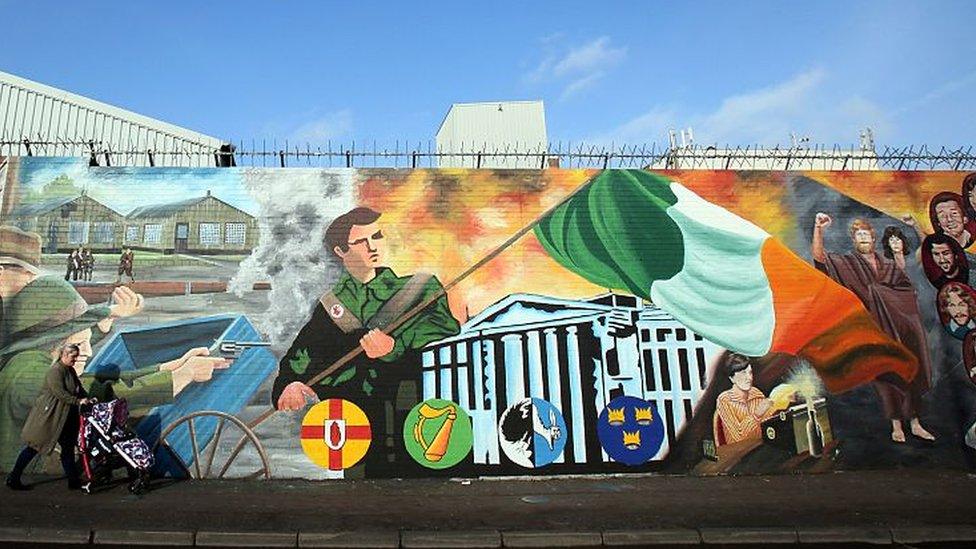
On the Falls Road, heart of Republican Belfast. there's a new sense of purpose. Sinn Fein pulled the plug on Stormont, did well in the elections, external and are now, like the Scottish government, demanding a referendum on their future destiny.
Brexit - rejected by 55.8% of voters, external in Northern Ireland - is seen as just the latest imposition by England.
It has given a new momentum to their whole reason for existing: the belief the island of Ireland should be one country.
Everywhere down the Falls there are reminders of those who killed and died for a united Ireland:, external here a mural of a young man with a rifle, there a huge sepia portrait celebrating the provisional Irish government set up in 1922.
But there are new signs too, lots of them. Sinn Fein's latest posters say West Belfast stands against Brexit., external
The referendum has changed politics here, as all over the UK, even on party night.
The West is gyrating in a sea of joyous green on St Patrick's Day. The social club on the Falls Road in Belfast is packed full of people dancing and drinking.
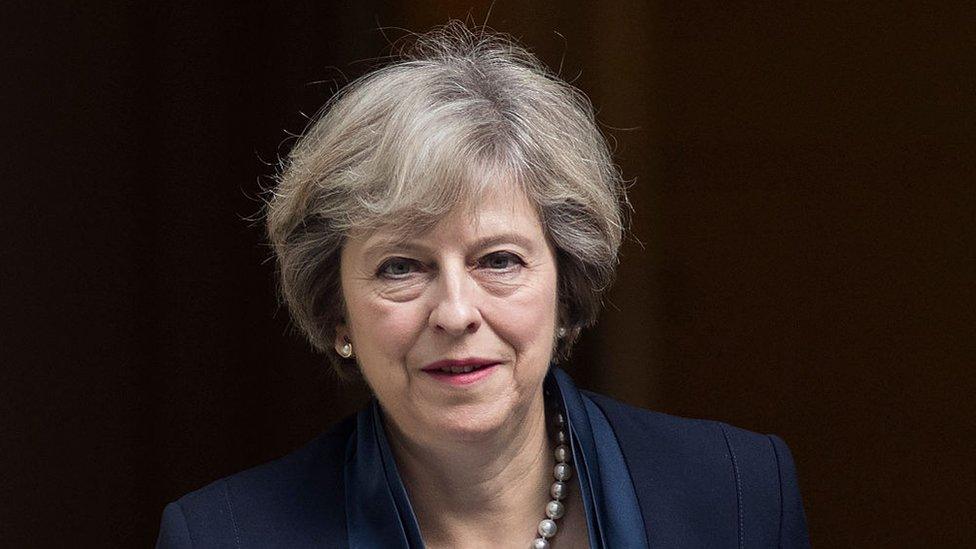
Theresa May has said the time is not right for a poll on Northern Ireland's border
Some merely wear a token green T-shirt or badge, but several women are in elaborate emerald dress, men in bowlers or stetsons of the appropriate shade: any culture you like as long as its Irish. Inevitably one man is dressed as that most emerald of animals, a crocodile, external.
Here even the plush is political. It's the greatest day of the year, says one woman: about Irishness, about all of Ireland. Does she feel British at all, I ask .
"Not at all, definitely Irish."
British as well as Irish? I ask another reveller.
"No, no, pure Irish."
And another tells me: "Irish 100%."
What Mrs May calls the UK, the "precious union of nations… the most successful the world has ever known", is seen very differently here.
They are in no doubt about Brexit, either - they are against it, unless you mean exiting from Britain, casting off what they see as the last shackles of the English Empire.
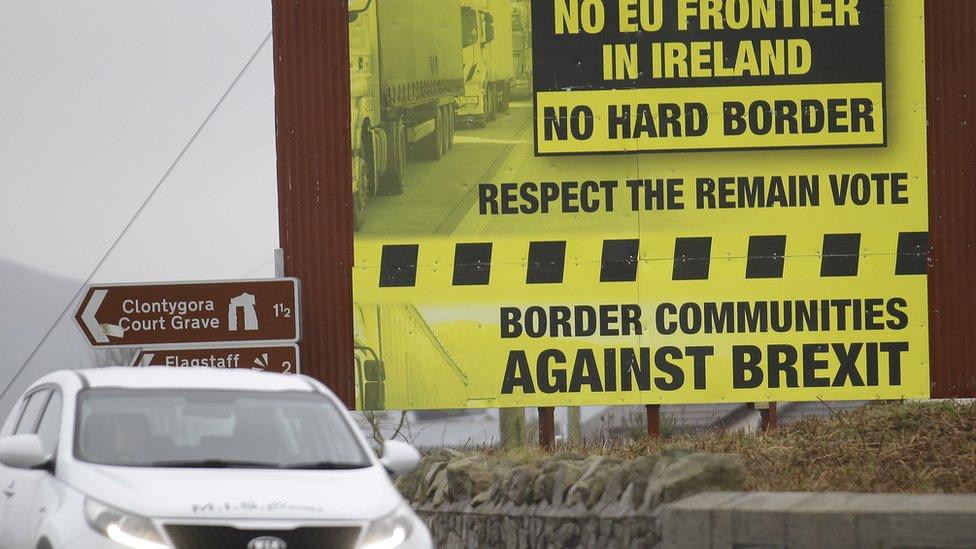
There are concerns on both sides of the border over the possible effects of Brexit
"We're not the UK, we're Ireland. We should have the right to vote. Theresa May is a fascist," one man tells me.
They fear a return to a real border between the Republic and Northern Ireland.
"Borders! Nobody wants 'em. We're nationalists here. Loyalist don't want it. Business people don't want it."
Hence the renewed demand for an all-Ireland referendum is being made by Sinn Féin as they look to exploit their success in the recent elections.
You can believe they pulled out of Stormont in a row over an obscure environmental scheme if you want. But the real story, external is deeper. Martin McGuinness resigned as deputy first minister over the handling of the botched energy scheme that could cost £490m. But others forces were also in play.
Sinn Fein activists were increasingly feeling they got little out of devolution, that their partners in government, the DUP, were treating them without respect. So they brought the whole thing crashing down.
If they do not do a post-election deal in the coming weeks then there will have to be new elections or London will take over: that's called "direct rule". The prime minister appears to have ruled that out.
The negotiations are a poker game but Sinn Fein has little to lose by blinking first. Their supporters want real movement on issues dear to their hearts, and a re-run of the election might see them increase their vote.
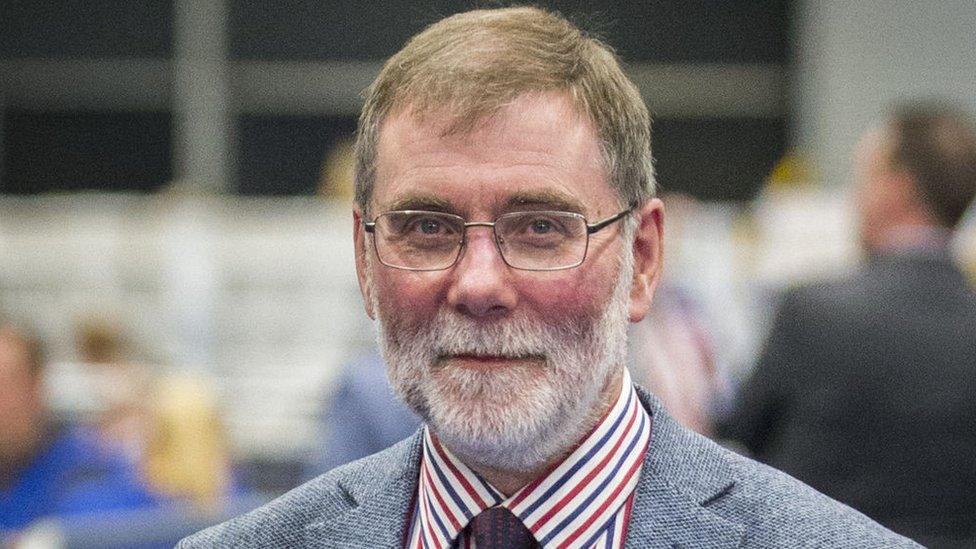
DUP's Nelson McCausland says Brexit "puts a stop" to the promotion of cross-border harmonisation via the EU
The real thorny issues are old ones, about the role of the Irish language and what are known euphemistically as "legacy issues, external'': whether people should face criminal prosecution for what they did during the Troubles.
The DUP's Nelson McCausland, who lost his assembly seat at the recent election, say this is not an opportunity for Sinn Fein, but a full stop.
"There has been over a number of years within Sinn Fein a concern they had not delivered on their united Ireland dream. What they have used over the years is the European Union and European harmonisation to promote the idea that we are being harmonised with the Republic. Brexit puts a stop to that."
Unionists hardly need to argue against the call for a referendum. The British secretary of state only needs to agree to one if, in the words of the act "it appears likely to him that a majority of those voting" want a united Ireland. Pretty hazy. And not a single opinion poll or commentator suggests there is that majority.
But the next day I return to the Falls and find a different picture at a language school, external from the hard line espoused by some of those at the West social club. Five people and their teacher sit around the table practising their Irish conversation. Among them, Linda Ervine who's been learning the language for six years.
"Because I am from the Protestant community I never had the opportunity to engage with the language and I fell in love with it."
She says there are many links with her own heritage. "We've been very separate, British identity, Irish identity but in the last few years a Northern Irish identity is coming through more and more. For me I see myself as Irish and British, I don't see that as a contradiction."
And there's the flood of people - including many Unionists and Protestants - applying for Irish passports in the wake of Brexit. The Belfast Newsletter newspaper's Sam McBride sees big changes under way.
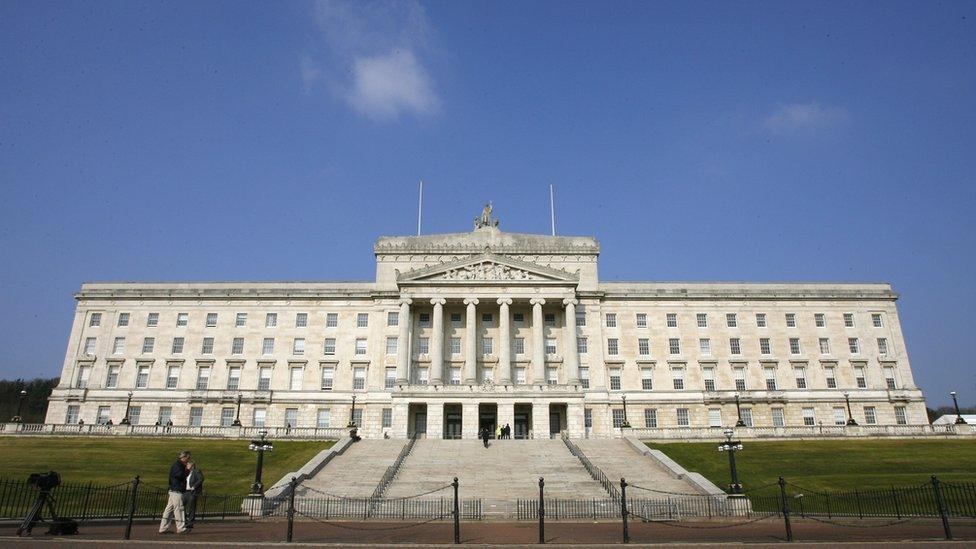
Sinn Fein made major gains at the recent Stormont assembly elections
"Unionism is facing a crisis at the moment, a seismic change.," he said. "The fundamental question is that there is a significant number of Catholics who support the union with the United Kingdom - why are they not voting for unionist parties? I think the answer is the trappings of Orangism and Protestantism put those people off."
There are straws in the wind across the border too. The cabinet in Dublin decided that eventually all Irish passport holders, including in the North, will be able to vote in presidential elections. The opposition party Fianna Fail is preparing is own white paper on plans for a united Ireland.
But Republican commentator Chris Donnelly, like most observers on both sides of the divide, thinks there will not be a referendum, and it couldn't be won because many from that tradition feel more economically secure in the North.
"I think Sinn Fein know in their heart of hearts they are 20, 25 years away from when a border poll could actually have a credible chance of being won. It's an example of "Hail Mary" politics. It's a lottery move, its not going to happen but it is keeping the issue alive at the centre of political discussions."
While we all get used to all new politics of identity, it has been the language of debate in Northern Ireland for centuries.
Brexit has muddied the political waters. And a new political space may be up for grabs.
- Published28 March 2017
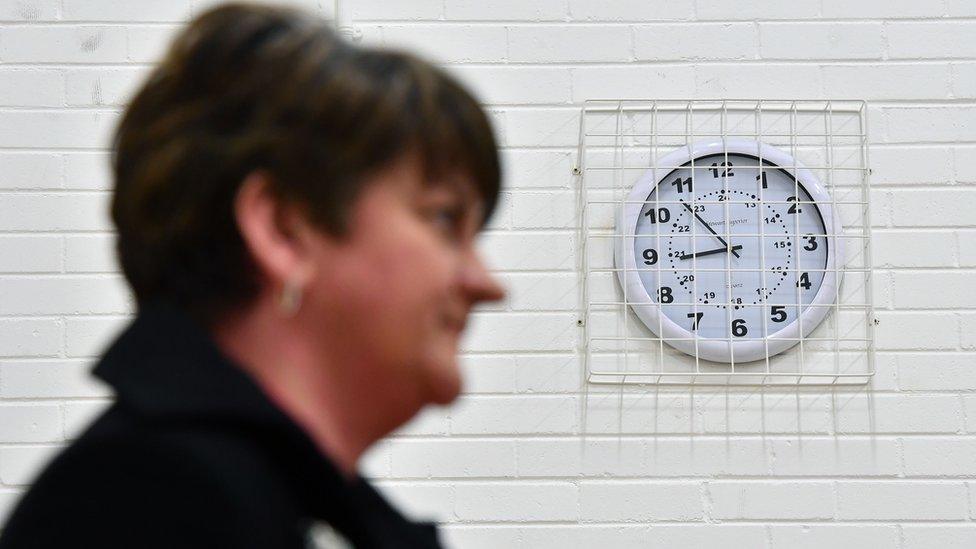
- Published17 March 2017
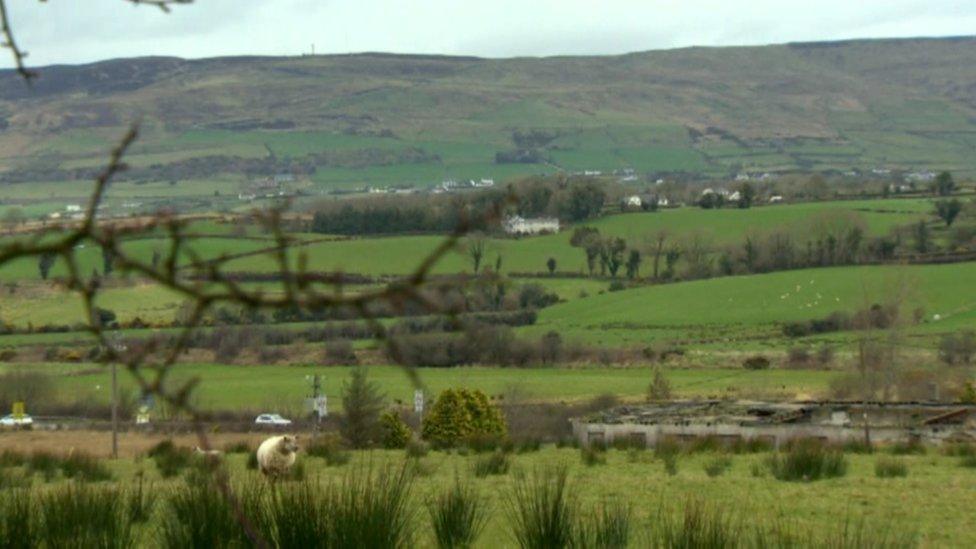
- Published23 October 2019

